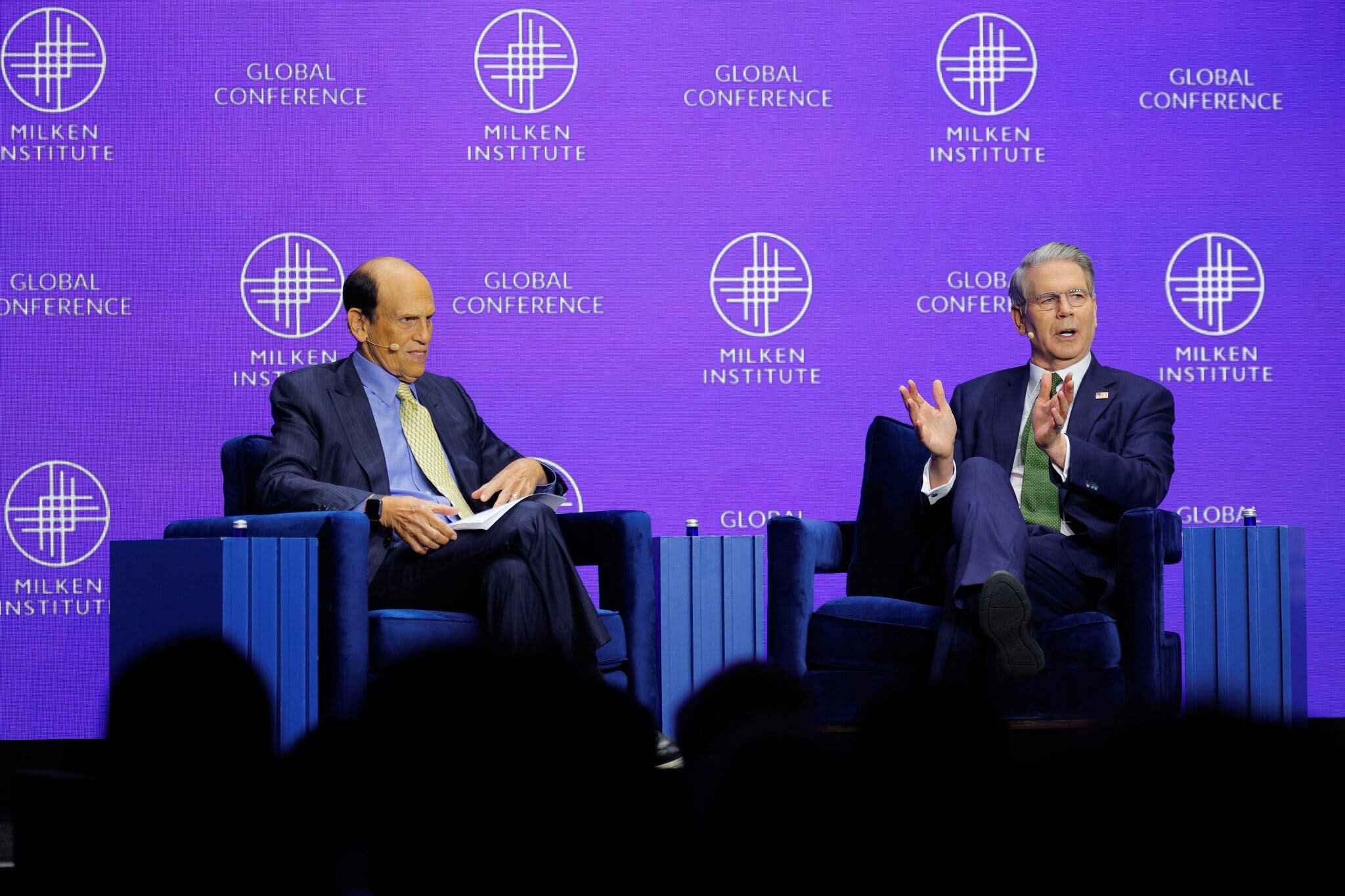As financial titans gathered in Los Angeles for the Milken Institute Global Conference, emotions were mixed under the grand chandeliers of the Beverly Hilton Hotel. The event, attended by a who’s who of finance and corporate America, was marked by a blend of anxiety and optimism amid volatile markets and ongoing trade tensions.
Kamal Bhatia, president and chief executive of Principal Asset Management, expressed the prevailing nervousness among CEOs due to turbulent market conditions and federal government cuts. Despite these concerns, some attendees, like Tony Minella, co-founder and president of Eldridge Industries, displayed optimism about technology, economic direction, and cost-cutting measures. “There is a lot of excitement in the world right now, and it’s a fantastic time to live,” Minella remarked.
The mood at the conference reflected the broader financial market trends. After a significant drop due to unexpected high tariffs imposed by President Trump, the S&P 500 showed signs of recovery, regaining approximately two-thirds of its losses. The Trump administration’s concessions and deal talks aimed at reducing tariffs offered some relief from initial panic.
The administration’s actions on tariffs have been varied. On April 11, threats of higher tariffs were linked to Mexico’s water debt under a 1944 treaty. Additional tariffs and sanctions were also threatened against Mexico over water rights disputes. On March 26, the administration announced a 25 percent tariff on imported cars and car parts, with no exemptions offered for tariffs beginning on April 2.
The conference highlighted the uncertainty surrounding these measures, with some skeptics suggesting that fund managers might be painting a rosier outlook to avoid alarming investors. Ron O’Hanley, chairman and chief executive of State Street, echoed this sentiment, emphasizing the unpredictability of the situation.
Scott Bessent, the Treasury Secretary, addressed these concerns, hosting a private dinner to reassure investors. Many attendees remained hopeful that tariffs would ease as trade deals progressed and pro-growth policies, like tax cuts and deregulation, were introduced later in the year. However, there was also a recognition that the reality might differ, with business activities on hold and corporate deal-making at a standstill.
As doubt persisted, some speakers advised diversifying investments away from the United States. Pension funds, university endowments, and insurance companies, previously heavily invested in the U.S., began reassessing their strategies. Kim Lew, president of the Columbia Investment Management Company, noted the missed opportunities in global investments.
Concerns about the role of the dollar as the world’s reserve currency and its impact on the government’s $36 trillion debt were also prominent. Alan Schwartz, executive chairman of Guggenheim Partners, warned of the eroding foundation of the dollar and the Treasury market.
Michael Milken, credited as the father of the high-yield bond market, delivered a rare keynote speech, advocating for the American dream, economic freedom, and equality of opportunity. He emphasized the importance of immigrants in renewing the focus on freedom and making significant contributions to the country.
Note: This article is inspired by content from https://www.nytimes.com/2025/05/08/business/milken-tariffs-economy.html. It has been rephrased for originality. Images are credited to the original source.

